When the Rev. Dr. Martin Luther King Jr. was assassinated in Memphis 53 years ago, the event sparked violence in many parts of the country.
But in Yakima, the community came together across racial, ethnic and religious lines to mourn and honor the slain leader of the civil rights movement. Many of Yakima’s faith leaders joined to conduct a memorial service attended by hundreds just two days after his death.
King, who was the face of the movement for racial equality and civil rights for 13 years, as well as a proponent of nonviolence and civil disobedience, was in Memphis in April 1968 to support a sanitation workers’ strike.
On April 3, 1968, King gave his famous “I Have Been to the Mountaintop” speech at Memphis’ Mason Temple. Drawing on the Old Testament imagery of Moses seeing the Israelites’ promised land from Mount Nebo before his death, King assured his audience that the civil rights movement would achieve its goal, even if he didn’t live to see it.
“I just want to do God’s will. And He’s allowed me to go up to the mountain. I’ve seen the promised land. I may not get there with you. But I want you to know tonight, that we, as a people, will get to the promised land,” King told the audience. “And I’m happy tonight. I’m not worried about anything. I’m not fearing any man. Mine eyes have seen the glory of the coming of the Lord.”
His words proved to be all too prophetic.
The next day, King was fatally shot in the neck by a sniper while standing on the balcony of the Lorraine Motel. James Earl Ray would eventually be convicted of King’s killing.
News of King’s death sent shock waves across the country, spurring riots in more than 100 cities despite calls for calm by President Lyndon B. Johnson and U.S. Sen. Robert Kennedy, who would himself be felled by an assassin two months later.
Also calling for peace was Methodist Bishop Everett W. Palmer in Seattle. Palmer directed congregations throughout the Pacific Northwest, including Yakima Methodist Church, to read a statement expressing condolences to King’s family, as well as pray for peace.
“More than one hand bore the gun of murder,” Palmer wrote in his message. “Everyone guilty of withholding full freedom and justice from a fellow human being, or of inflicting indignity and humiliation upon him for reason of his race, shared in that crime, as did all who have been indifferent to the struggle for racial injustice in our land.”
In Yakima, a citywide memorial service was quickly put together for April 6. The Rev. John Adams, pastor of Pilgrim Rest Baptist Church, volunteered his church for the service, which would follow a mourning procession down South Naches Avenue.
However, Adams said it would be an outdoor service, as he thought the mourners would exceed the church’s capacity of 300 people.
Within two hours of the program’s announcement, 25 clergy members from the area stepped forward and volunteered to participate.
When the procession started, there were 178 people, swelling to 213 by the time they arrived at the church. News reports said 86 of the marchers were Black.
“The purpose of this memorial is not just for the Black race, but for the whole of the United States of America,” Adams told the audience. “(King) has given his life for all of us — for justice and for nonviolence. God made us all, and God wants us to work together as brothers. Fighting and hatred must go.”
Yakima Mayor Jack Larson, Bishop Joseph Dougherty of the Yakima Diocese, and Henry Beauchamp, director of the Southeast Yakima Community Center who would go on to become Yakima’s first Black mayor, also spoke.
The Yakima Council of Churches also conducted a memorial service at First Baptist Church, while what is today Central Washington University conducted a memorial service on campus on April 8, with 500 students and faculty in attendance.
CWU students also wore black armbands, with more than 100 students and faculty paying 25 cents each to add their names to a telegram expressing condolences to King’s widow. Thirty-three of CWU’s Black students announced plans to form a Black Student Union on campus.
“I hope blacks, whites and all others concerned will take advantage of this opportunity to discuss the problem intelligently,” said John Connally, a spokesman for the group, in an April 6, 1968, news account. “If this does not happen, our own feelings are that there are grave days ahead.”
In recent years, Yakima has further honored King’s memory by naming a park in southeast Yakima and the former B Street after him.

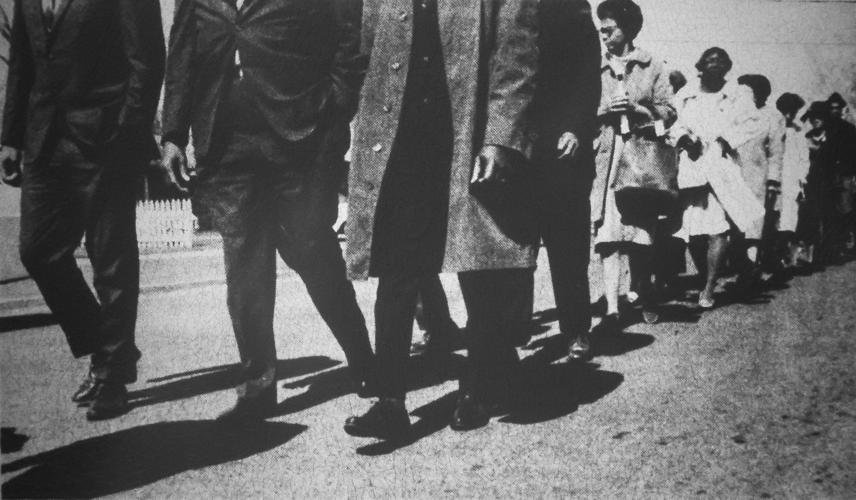
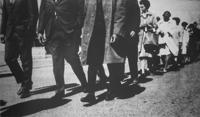

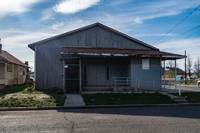

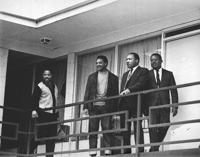

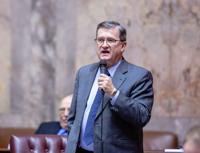

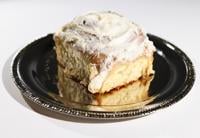

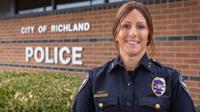
(0) comments
Comments are now closed on this article.
Comments can only be made on article within the first 3 days of publication.